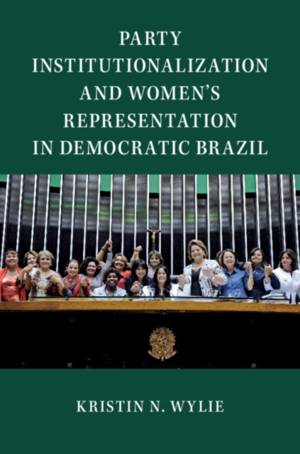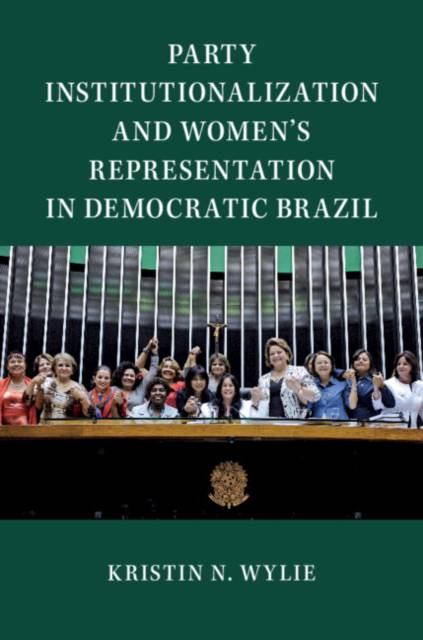
- Afhalen na 1 uur in een winkel met voorraad
- Gratis thuislevering in België vanaf € 30
- Ruim aanbod met 7 miljoen producten
- Afhalen na 1 uur in een winkel met voorraad
- Gratis thuislevering in België vanaf € 30
- Ruim aanbod met 7 miljoen producten
Zoeken
Party Institutionalization and Women's Representation in Democratic Brazil
Kristin N Wylie
€ 125,95
+ 251 punten
Omschrijving
Brazil's quality of democracy remains limited by enduring obstacles including the weakness of parties and underrepresentation of marginalized groups. Party Institutionalization and Women's Representation in Democratic Brazil theorizes the connections across those problems, explaining how weakly institutionalized and male-dominant parties interact to undermine descriptive representation in Brazil. This book draws on an original multilevel database of 27,653 legislative candidacies spanning six election cycles, over 100 interviews, and field observations from throughout Brazil. Wylie demonstrates that more inclusive participation in candidate-centered elections amidst raced-gendered structural inequities relies on institutionalized parties with the capacity to support women, and the will, heralded by party leadership, to do so. The book illustrates how women leaders in Brazil's more institutionalized parties enable white and Afro-descendant female aspirants to navigate the masculinized terrain of formal politics. It enhances our understanding of how parties mediate electoral rules, as well as institutional and party change in the context of weak but robustly gendered institutions.
Specificaties
Betrokkenen
- Auteur(s):
- Uitgeverij:
Inhoud
- Aantal bladzijden:
- 290
- Taal:
- Engels
- Reeks:
Eigenschappen
- Productcode (EAN):
- 9781108429795
- Verschijningsdatum:
- 2/08/2018
- Uitvoering:
- Hardcover
- Formaat:
- Genaaid
- Afmetingen:
- 233 mm x 161 mm
- Gewicht:
- 526 g

Alleen bij Standaard Boekhandel
+ 251 punten op je klantenkaart van Standaard Boekhandel
Beoordelingen
We publiceren alleen reviews die voldoen aan de voorwaarden voor reviews. Bekijk onze voorwaarden voor reviews.











